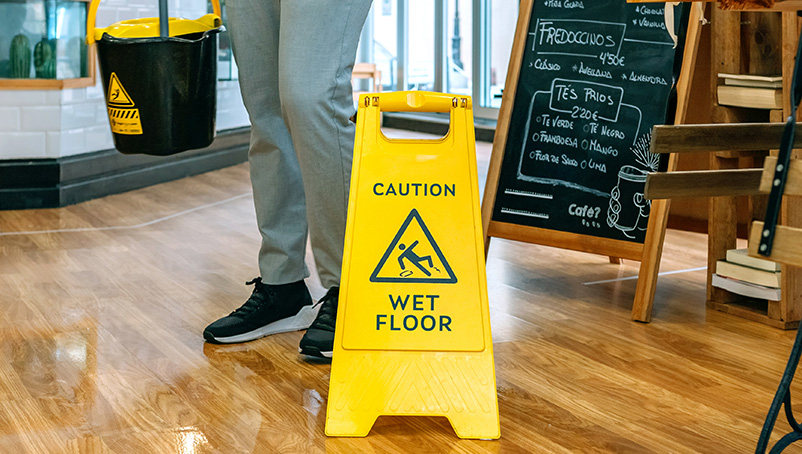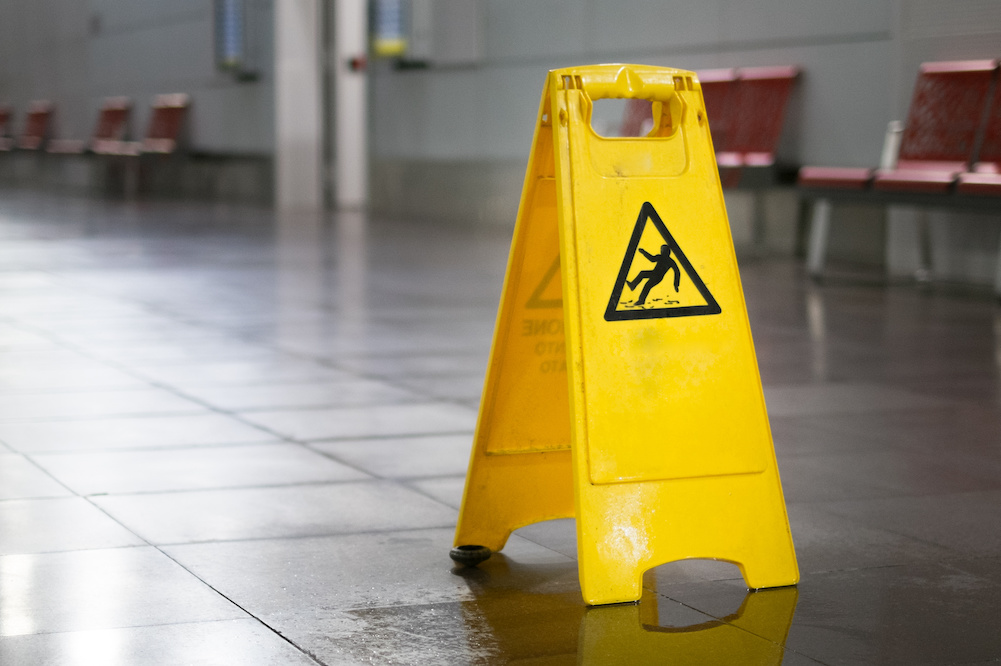What is bodily injury?
Bodily injury is an element of personal injury. It’s an injury to the body that can include pain and suffering and medical expenses. It can describe cuts, disfigurement, broken bones, sickness, disease or death.
If a customer sues you or your business after getting hurt in your store or on your property, your general liability insurance coverage could help pay for medical bills, ongoing treatment and lost wages up to your policy limits.
Example of bodily injury
Let’s say you’re getting ready to close up your shop. Rain has been falling for hours and the doormat in the entryway is soaked. A customer slips on the wet mat and breaks their arm in the fall.
Because the break happened in your store, your business could be held responsible for damages.
If you have commercial liability insurance coverage for bodily injury, your policy could pay for the customer’s medical expenses, follow-up care and lost income from missing work.
Sometimes this coverage can also help cover legal costs and judgements if your dispute ends up in a lawsuit.
How to protect your small business from bodily injury claims
The best protection against insurance claims and legal action is to prevent any cause of bodily harm before it happens. These safety tips can help keep your business incident-free:
- Inspect your premises regularly to spot potential hazards.
- Clean and maintain your tools and equipment.
- Keep a record of inspections and document repairs.
- Post warning signs for hazardous conditions such as wet floors.
What is personal injury?
Personal injury includes the pain and suffering and medical expenses of bodily injury, but it also includes other damages that can arise out of bodily injury, such as lost wages, false arrest, vexatious lawsuits or wrongful eviction. A personal injury damages someone else’s reputation in a way that can cause them financial loss.
Commercial general liability insurance sometimes includes coverage for personal and advertising injury. It can expand protection to your business to include slander and libel.
If you face a personal injury case, your general liability coverage could help pay for an attorney to defend you, legal judgments and other costs.
Example of personal injury
Let’s say you own a retail store and one of your employees thinks a customer is shoplifting.
Your employee directs the customer to a back office, tells them they can’t leave and waits for the manager to arrive.
This situation could deprive a person of their personal liberty. If your store detains the customer it could be considered a false arrest.
Personal injury insurance, usually a part of small business insurance, may help cover your legal fees if a customer decides to sue.
How to protect your small business from personal injury claims
Train and educate your employees on the right policies and procedures, so they’re prepared to handle potential personal injury situations when they occur. This could include:
- Regularly scheduled training sessions.
- Monitor and moderate user-generated content on your website and social media.
- Quickly fix errors or negligence in your work that may damage a client’s reputation.
- Avoid negative statements or comments about another person or business that you know aren’t true.
How NEXT helps protect your small business
NEXT’s general liability insurance can help shield your business from the unexpected costs of bodily injury and personal injury claims.
Get a quote, review your policy options and purchase coverage — all in about 10 minutes. Your certificate of insurance is available immediately after you pay your premium.
If you have questions, our licensed, U.S.-based insurance professionals are ready to help.
Started a free quote with NEXT today.









